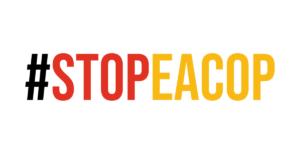The following is based on a communication written by the UN Special Rapporteur on Human Rights Defenders and other UN experts to the Government of Egypt on 25 May 2022. The communication remained confidential for 60 days before being made public, giving the Government time to reply. The Government did not reply within this timeframe. If a reply is received, it will be published on the UN Special Procedures’ database.
According to information received since this communication was sent, Mr. Mansour remains in pre-trial detention.
This is a shorter version of the original communication.
BACKGROUND
Topic: arrest, enforced disappearance and arbitrary detention of human rights lawyer, Mr. Youssef Mansour.
Mr. Youssef Mansour is a lawyer, formerly with the Arab Network for Human Rights Information, a non-governmental organisation that shut down in January 2022. He was the defence lawyer of another human rights defender, who was sentenced in December 2021 to four years in prison.
ALLEGATIONS
On 24 March 2022, around 30 security personnel, who arrived in police and civilian cars, arrested Mr. Youssef. Some were armed, some were in civilian clothing, and they produced no arrest warrant but told Mr. Youssef “we are affiliated with the government,” and gave him three minutes to get ready.
It is reported that Mr. Mansour was forcibly disappeared for two days, during which his family had no information about his whereabouts. In addition, his official arrest document was dated 25 March 2022, one day later than his actual arrest. He later told his lawyers that he had been held at the Interior Ministry’s National Security Agency in Cairo, and was questioned about his social media postings.
On Friday 25 March 2022, he was moved to al-Basatin police station, also without the knowledge of his family or lawyer.
On 26 March 2022, Mr. Mansour appeared before the Supreme State Security Prosecutor (SSSP) in Case No. 330/2022 on accusations of spreading false news inside Egypt and outside. Mr. Mansour was questioned about Facebook postings he had made regarding the prison conditions of on of his clients. Mr. Mansour had mentioned in his posts that the prison service sector had refused to implement official family and lawyer visiting permits to his client, held in the maximum security facility within the Tora Prison complex south of Cairo, known as Scorpion 2. He was ordered to be held in pre-trial detention pending investigations.
Mr. Mansour was accompanied by two lawyers during the interrogation, and was allowed to meet privately with them for a few minutes after the interrogation and before he was returned to his place of detention. His lawyers were reportedly not permitted to view the charge sheet or the evidence held against him.
Mr. Mansour has since been held in al-Basatin Police Station, and his pre-trial detention has been renewed twice for 15 days each time.
According to Mr. Mansour’s lawyers, the accusations in Case 330/2022 under which he is held are based on anti-terrorist Law No. 94 of 2015, and on Penal Code No. 95 of 1937 (updated) and they include the crimes of joining a terrorist group, which carries the death penalty, or long-term detention; incitement to commit a terrorist crime, punishable by up to one year in prison; and the dissemination of false news and statements harmful to the national interest, punishable by up to five years in prison and/or a fine of up to LE 500 (€ 25).
CONCERNS
In the communication we expressed serious concern as to the prosecution of Mr. Mansour as a result of the legitimate exercise of his professional functions as a human rights lawyer and his related use of social media. We are also concerned about the restriction of his right to freedom of opinion and expression, provided by article 19 of the International Covenant on Civil and Political Rights, which Egypt acceded to in January 1982.
If confirmed, these allegations would be in breach of the guarantees that lawyers are entitled to in order to perform their professional functions without any threat, intimidation, harassment or interference, and without suffering, or being threatened with, prosecution or any administrative or disciplinary sanctions for actions undertaken in accordance with professional duties and ethical standards. In particular, international standards provide that lawyers should not be subject to civil, criminal or disciplinary liability for statements made in good faith in written or oral pleadings or in their professional appearances before the judicial authority.



